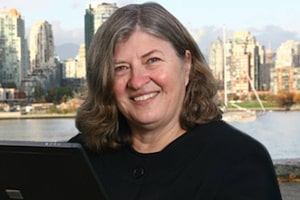Chief Dean Nelson, Líl̓wat Nation, during a news conference announcing a memorandum of understanding for the first Indigenous bid to explore feasibility of hosting 2030 Olympic and Paralympic Winter Games in Vancouver, on Dec. 10.JIMMY JEONG/The Canadian Press
Four First Nations, along with the cities of Vancouver and Whistler, have agreed to explore a world-first Indigenous-led bid for an Olympic Games in the winter of 2030.
They, and others supporting it, say they believe it will give B.C. an edge as it competes with at least four other interested cities around the world, if the group decides to move forward.
“It’s an arm for showing reconciliation and moving forward. Hopefully, it will give us an advantage,” Musqueam Chief Wayne Sparrow said Friday, as he stood with chiefs and councillors from the Lil’wat, Squamish, and Tsleil-Waututh nations as well as the mayors of Vancouver and Whistler to announce the signing of a memorandum of understanding on the bid exploration.
The president of the Canadian Olympic Committee was equally optimistic about the impact that a bid headed by the nations would have.
“I spoke to the IOC president last week and he was very interested and excited to hear we were following the [UN Declaration on the Rights of Indigenous People] and how that was going to be front and centre in terms of an Indigenous-led bid,” said the COC’s Tricia Smith, who was present at the news conference.
All six groups will need to get approvals from their councils to move forward as part of the exploratory process before deciding whether to submit an official bid by next July.
But the four leaders of local nations expressed strong enthusiasm about how much the 2010 Olympic Games in Vancouver had done for their people and how much more will result from another Games that is led by them.
“I was a 2010 co-ordinator and my best moment was seeing the pride in our children and youth,” said Tsleil-Waututh Chief Jen Thomas. “Back in 2010, we were just little. But now everybody knows this is our territory.”
Squamish councillor Wilson Williams said that the idea of putting in another bid produced “nothing but good feelings moving forward” as he thought about the inspiration that the 2010 Games had produced.
And Lil’wat Chief Dean Nelson said it was exciting to think that last time, the nations were only invited guests, even though they had a lot of prominence in the 2010 Games, but this time, they’d be leaders.
“I feel we are in a better place of inclusion.”
The B.C. bid will need some intensive work to catch up with some other cities that have been shaping theirs for a long time.
Although B.C. can make the argument that it has already held an Olympics, the same is true for the other four cities expressing interest around the world: Sapporo, Japan; Salt Lake City in the United States; Lillehammer in Norway; and Barcelona in Spain.
There won’t be an internal competition in Canada, the way there was for the 2010 Olympics, when Vancouver had to first beat out Calgary and Quebec, before going on to win more votes than Pyeongchang, South Korea, and Salzburg, Austria.
Smith said the International Olympic Committee has improved the bidding process, so that Canada won’t have to spend $35-million to prepare a bid just to be in the running. Instead, the IOC has established a process that is more like a conversation that will move on to a “targeted dialogue” as it narrows down choices.
As well, there won’t be a competition among Canadian cities, because the COC has already decided that a B.C. bid, especially one that embodies efforts at truth and reconciliation with Indigenous peoples, makes the most sense.
None of the nations’ representatives or mayors had any specifics on how much money would need to be spent, even though there are already a lot of facilities in B.C., or where the money would come from.
There also weren’t a lot of specifics about how an Indigenous-led Games would be different, except for one thing they’re sure of.
“I think our history still has to be told in full capacity,” Nelson said. “I think it’s time and it’s a good platform for that.”
We have a weekly Western Canada newsletter written by our B.C. and Alberta bureau chiefs, providing a comprehensive package of the news you need to know about the region and its place in the issues facing Canada. Sign up today.
 Frances Bula
Frances Bula